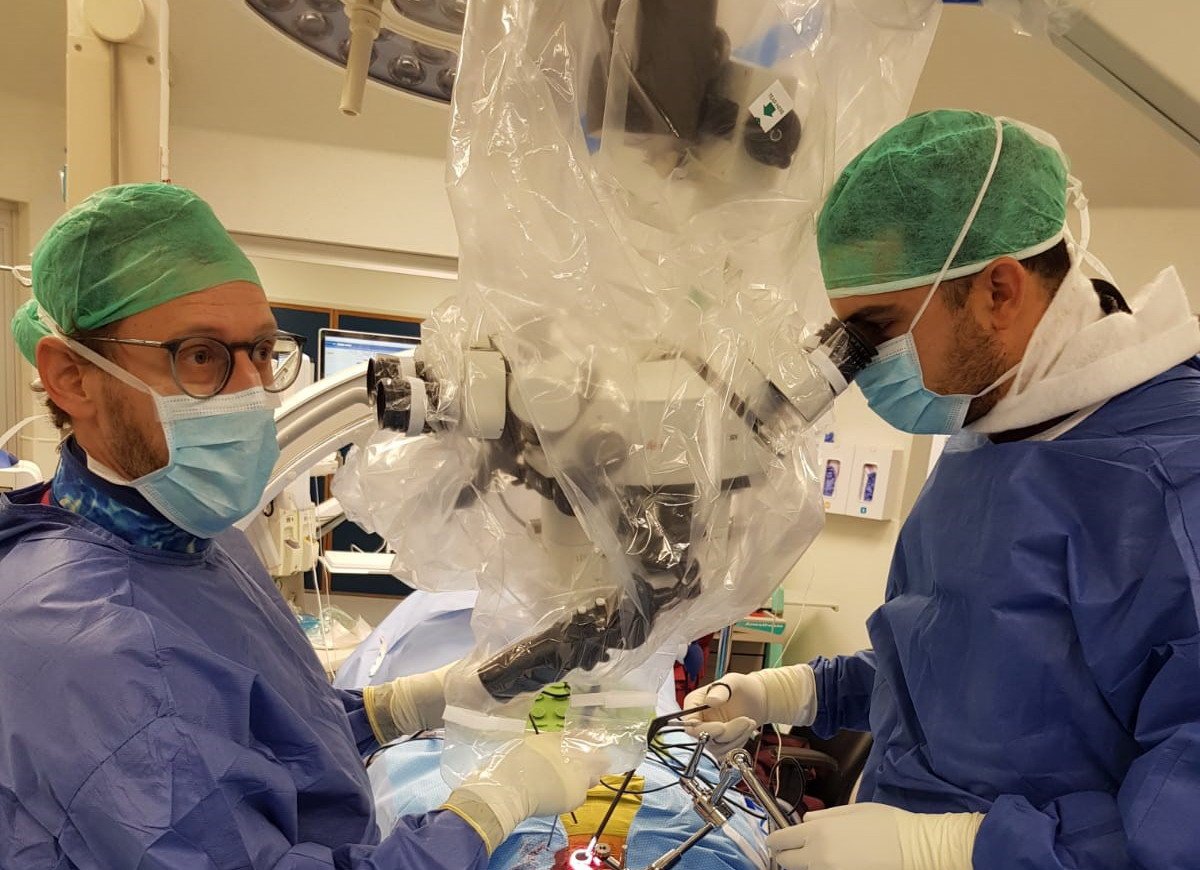The Orthopedics Division at Hillel Yaffe Medical Center carried out for the first time this week, surgery for correcting cervical disc herniation using minimally invasive surgical treatment from the back, on a patient in his fifties, who suffered from severe neck pain which radiated throughout his arm and hand and was accompanied by severe daily pain.
“Disc herniation is a situation in which there is pressure on the neural tissue surrounding the cervical spine, which causes severe pain and limited movement, and which can continue for days or even a few weeks. In addition to the pain in the neck area, radicular pain can also develop – severe pain originating in the nervous system, which also radiates to other areas, such as the shoulders and arms, and other neurological symptoms can also appear – such as a weakening of the hand and finger muscles and a feeling of paresthesia,” explains Dr. Gabriel Gutman, specialist in back and spine surgery at the Hillel Yaffe Medical Center, who performed the surgery.

Dr. Gutman during the surgery for correcting cervical disc herniation
Existing treatments
In cases of disc herniation, there are conservative treatments which include painkillers and drugs for treating infection, physiotherapy, warming the neck, immobilization, strengthening the neck muscles, injections, and resting. If these do not help, the surgical option will be considered.
“The accepted and familiar surgical procedures in cases of cervical disc herniation are artificial disc replacement or immobilization of the vertebrae. The unique method we used, unlike other methods, is carried out from the back of the neck and requires skill on the part of the surgeon. During the surgery, an incision of around 18mm is made, through which a surgical microscope is inserted which enables the location of what is pressing on the nerve, removing the back part of it, and thus release the pressure on the root canal,” notes Dr. Gutman.
Advantages of the method
This method has several advantages, including: preserving range of movement, a lack of need for an artificial implant, or, alternatively, immobilization of the vertebra, as well as a reduction in the complications involved in other surgery, such as harming large blood vessels or the esophagus and vocal cords, which can lead to hoarseness and difficulty in swallowing.
Dr. Eyal Behrbalk, Director of the Orthopedics A Department, and specialist in spinal surgery at the Hillel Yaffe Medical Center, notes: “We, at the Hillel Yaffe Orthopedics Division, use some of the most advanced surgical techniques in the field. This method makes it unnecessary to remove the cervical disc and insert an implant or artificial disc, and therefore this is an excellent surgical technique which enables our patients to have a speedier and better recovery and return more quickly to their regular lives.”
To schedule an appointment for consultation at the Hillel Yaffe Medical Center Orthopedics Clinic, please call *6742.











.jpg?BannerID=39)

